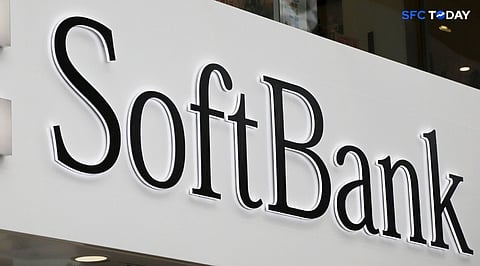

SoftBank Group’s decision to sell its $5.8 billion stake in Nvidia has drawn wide attention across global markets. In October 2025, the Japanese investment giant sold about 32.1 million Nvidia shares, cashing out at a time when Nvidia remains one of the world’s most valuable companies. The move has raised questions: was this a smart strategic shift to fund future artificial intelligence (AI) ventures, or a costly decision that could mean missing out on more future gains?
SoftBank described the Nvidia sale as a strategic move rather than an act of profit-taking. The company said it wanted to redeploy the funds into newer, faster-growing areas of the AI industry, including direct investments in companies such as OpenAI. It is also exploring large-scale projects like “Stargate”, which aims to build global data center infrastructure to support AI model training and deployment.
According to SoftBank’s leadership, simply holding shares in Nvidia — a dominant supplier of AI chips — offered limited strategic influence. By contrast, investing directly in AI platforms and infrastructure gives the company greater control and stronger long-term value creation. In other words, SoftBank wants to own more of the core AI ecosystem rather than just investing in one supplier.
The announcement of the sale triggered mixed reactions in financial markets. Nvidia’s shares dipped slightly — around 2–3% — after the disclosure, though they quickly stabilized. SoftBank’s own shares, however, fell more sharply, dropping by almost 10% intraday before recovering part of the loss.
Investors seemed divided. Some praised SoftBank for taking profits after a huge rally in Nvidia’s stock, which had surged several hundred percent since 2022. Others questioned whether it made sense to exit a company that remains at the heart of the global AI boom. Many saw the shift from a stable, high-performing public stock to riskier, less liquid private investments as a bold but uncertain gamble.
From a strategic point of view, the sale makes sense for a company like SoftBank. Nvidia’s success is built around AI chips and software, but owning its shares does not allow an investor to shape the direction of the technology or influence its business decisions. For SoftBank, which aims to be a global leader in AI investment, owning part of AI creators and infrastructure builders offers more strategic control.
By freeing up billions in cash, SoftBank can now focus on areas that align with its long-term mission: to support the development of AI systems and physical infrastructure that power real-world applications. Direct investments in OpenAI and similar ventures could give SoftBank a seat at the table where the next phase of AI growth is designed.
SoftBank’s founder, Masayoshi Son, has repeatedly said that AI is at the center of his vision for the company’s future. This move reflects that belief — converting passive investment gains into active strategic ownership.
On the other hand, critics argue that the sale might prove to be a major missed opportunity. Nvidia’s stock has been one of the strongest performers in modern market history, driven by relentless demand for AI chips used in data centers and cloud services. Many analysts expect Nvidia’s growth to continue as AI adoption expands across industries.
If Nvidia continues its upward trajectory, SoftBank’s exit could look poorly timed. By selling now, the company might have given up billions in potential future gains. Moreover, the private AI startups that SoftBank is betting on are highly valued and risky. Unlike Nvidia, which generates consistent profits and cash flow, these new ventures depend heavily on future technological and commercial success that is far from guaranteed.
Investing in private companies also brings liquidity risks — meaning SoftBank cannot easily sell those stakes if it needs cash. The company is effectively trading a liquid, proven asset for a series of uncertain, long-term bets.
SoftBank’s timing may also be influenced by balance-sheet considerations. The company reported strong profits in 2025, boosted by gains in its Vision Fund portfolio. Selling a portion of its Nvidia stake provided fresh capital to fund upcoming commitments to AI infrastructure and partnerships.
From a financial planning perspective, the move helps the company manage liquidity and reduce exposure to a single asset. However, history shows that selling high-performing assets in a rising market can backfire if the rally continues. While the sale secures current gains, it also ends participation in Nvidia’s future compounding potential.
Ultimately, this decision reflects SoftBank’s shift from being a passive investor in technology companies to becoming an active player in shaping the AI revolution. The company is repositioning itself as an owner of key parts of the AI ecosystem — from data centers and software models to robotics and edge computing.
This approach could pay off handsomely if SoftBank successfully identifies the next wave of transformative AI businesses. Yet, the transition also comes with higher uncertainty, as private AI markets are more volatile and less transparent. The challenge will be execution: selecting winners, managing risk, and ensuring that capital is deployed efficiently.
The final judgment on SoftBank’s Nvidia exit will depend on how its new investments perform in the coming years. If ventures like OpenAI and the Stargate project deliver strong financial returns and strategic influence, SoftBank may be praised for its foresight and bold vision. However, if Nvidia continues to dominate the AI hardware market and its stock climbs further, the sale could be remembered as a missed windfall.
For now, SoftBank’s move highlights a broader theme in the investment world — the trade-off between certainty and ambition. Nvidia represents the established side of AI success, while SoftBank’s new investments represent the uncertain but potentially larger frontier of AI innovation. Whether this rebalancing proves strategic or regrettable will become clear only with time.